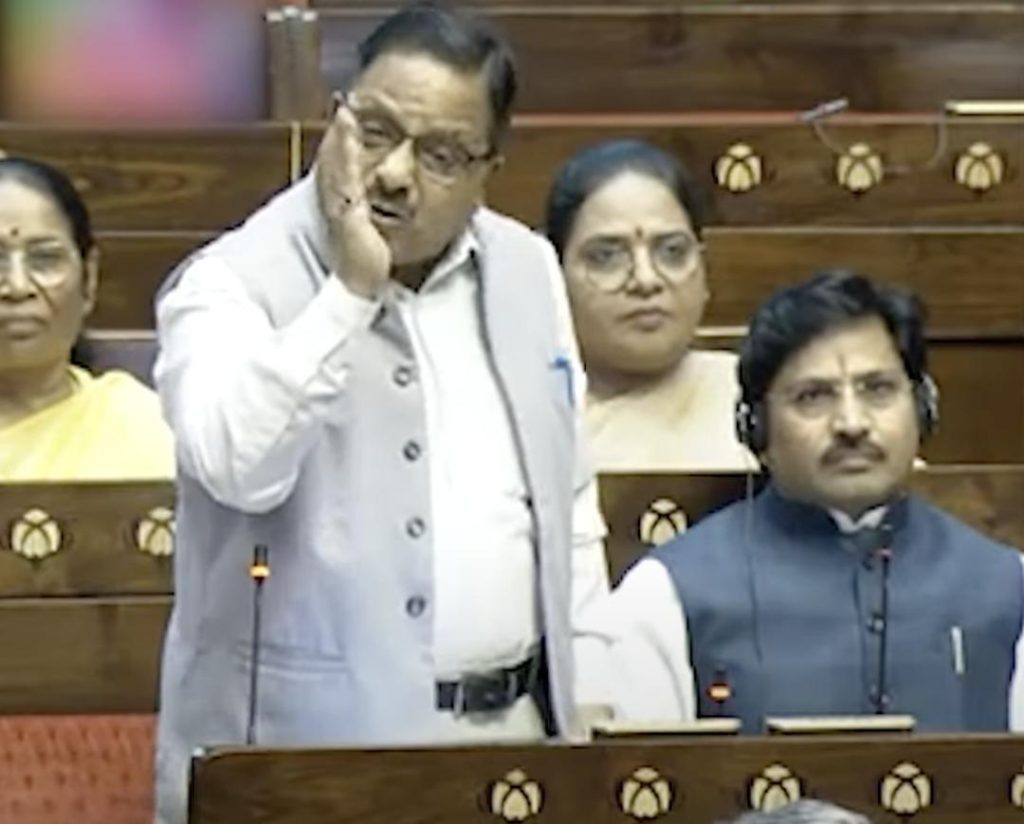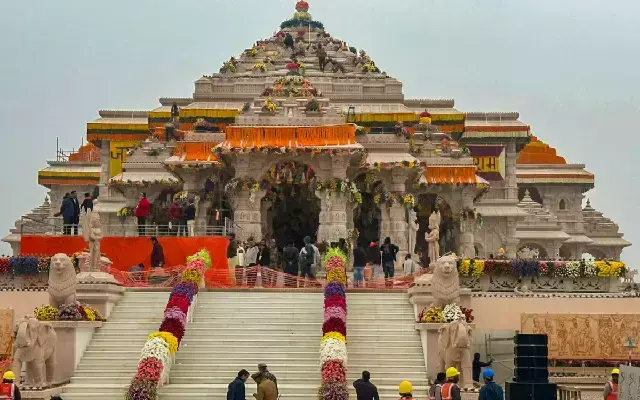
Title: Should I read Quran & tell you what’s written in it: BJP MP Radha Mohan Das on Waqf Bill
The Waqf Bill, which aims to regulate and manage the properties of various Waqf boards in India, has been a topic of discussion in the Indian parliament. During the recent discussion on the bill, BJP MP Radha Mohan Das made a statement that sparked a heated debate. He asked if he should read the Quran and tell what is written in it, prompting many to take notice.
Radha Mohan Das made the statement while debating the Waqf Bill in the Lok Sabha. He was questioning the functioning of the Waqf Board, which manages properties left behind by devotees of various religions. Das alleged that the Waqf Board had many properties without proper records, and he wondered if the Quran had any provisions for such a situation.
In his statement, Das said, “The Quran says that even if one rupee is given to anyone, there should be a written record…And you say you have so many properties without a record.” He was referring to the lack of transparency and accountability in the functioning of the Waqf Board.
Das’ statement has sparked a debate on social media, with many people questioning the need to bring up religious texts in a parliamentary discussion. Some have argued that Das was trying to divert attention from the real issues and use religion to stir up controversy.
However, others have defended Das’ statement, saying that it was a legitimate question to ask about the provisions in the Quran. They argue that the Quran is a holy book that guides Muslims in their daily lives, and it is reasonable to ask about its teachings on issues like property management.
The Waqf Bill aims to regulate and manage the properties of various Waqf boards in India. The bill proposes to establish a Waqf Authority, which will oversee the functioning of the Waqf boards and ensure that they are managed in a transparent and accountable manner.
The bill also proposes to create a Waqf Board, which will be responsible for managing the properties of the Waqf boards. The Waqf Board will be headed by a chairman who will be appointed by the government.
The Waqf Bill has been criticized by many, who argue that it is an attempt by the government to interfere in the functioning of the Waqf boards. They say that the bill is unnecessary and that the Waqf boards are already functioning well.
However, supporters of the bill argue that it is necessary to regulate the functioning of the Waqf boards. They say that the Waqf boards are not transparent and accountable, and that the bill will help to ensure that they are managed in a fair and transparent manner.
The debate on the Waqf Bill is an important one, as it has implications for the functioning of the Waqf boards and the management of their properties. The bill has been passed by the Lok Sabha and is now pending in the Rajya Sabha.
In conclusion, Radha Mohan Das’ statement about reading the Quran and telling what is written in it has sparked a debate on social media. While some have criticized Das for bringing up religious texts in a parliamentary discussion, others have defended his statement, saying that it was a legitimate question to ask about the provisions in the Quran.
The Waqf Bill aims to regulate and manage the properties of various Waqf boards in India. The bill proposes to establish a Waqf Authority, which will oversee the functioning of the Waqf boards and ensure that they are managed in a transparent and accountable manner.
The bill also proposes to create a Waqf Board, which will be responsible for managing the properties of the Waqf boards. The Waqf Board will be headed by a chairman who will be appointed by the government.
The debate on the Waqf Bill is an important one, as it has implications for the functioning of the Waqf boards and the management of their properties.
News Source:
https://www.youtube.com/watch






